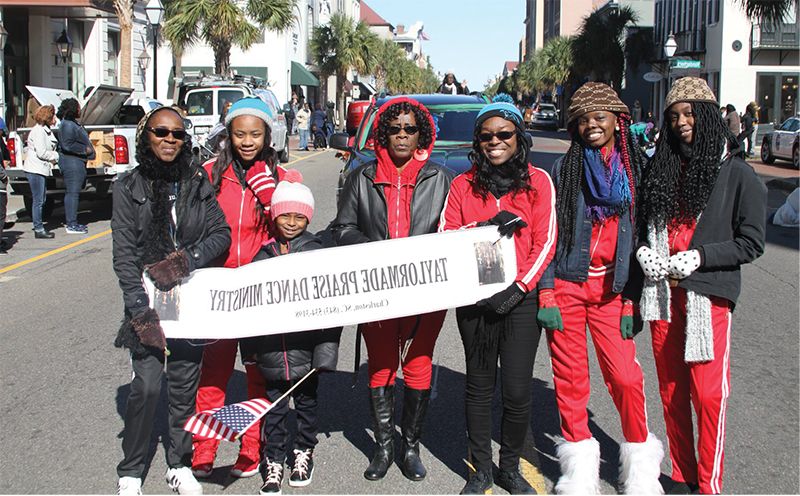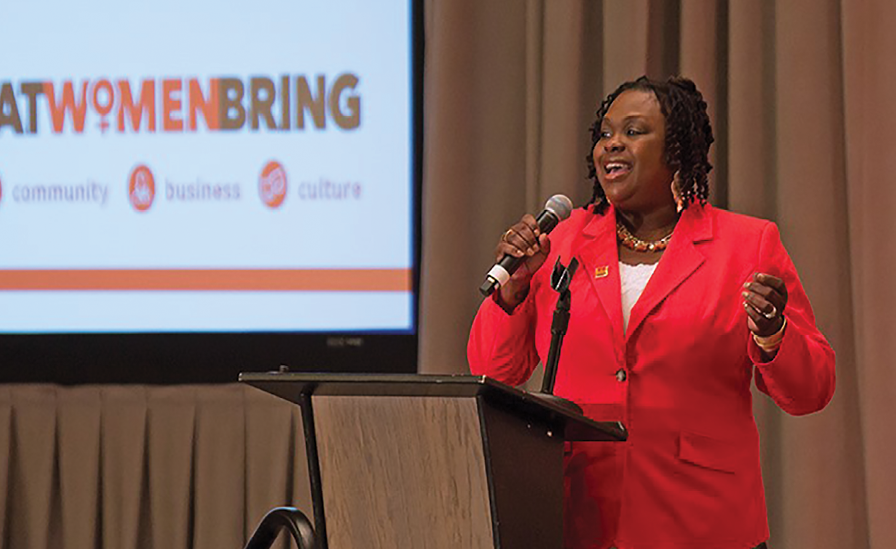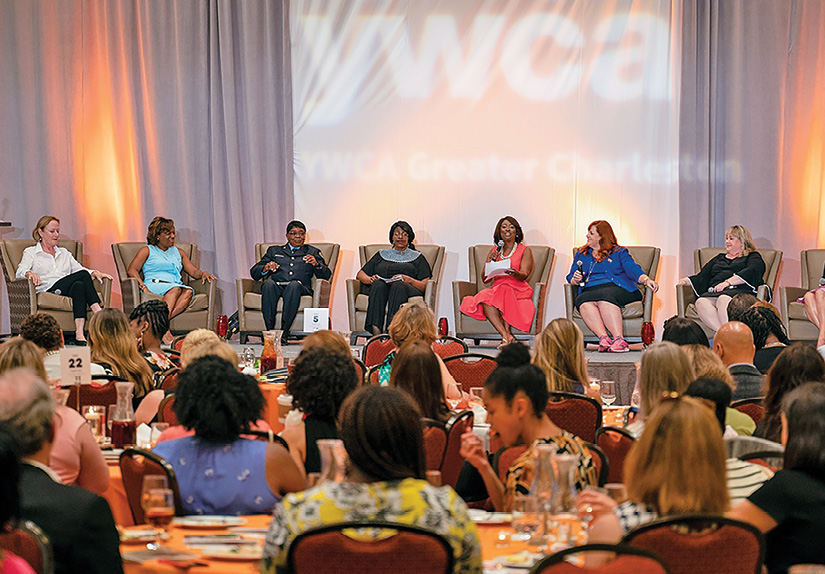The nonprofit coordinates the city's MLK Day celebration as part of its social justice mission

The nonprofit has been coordinating the city’s MLK Day Parade for about 20 years.
Alexis, a Winthrop University graduate student, took a deep breath before launching into her master’s capstone presentation. After completing the public-speaking series sponsored by the YWCA, “Own the Room,” Alexis had the self-assuredness to stand before the panel and do exactly that. In the end, the young woman not only earned her social work degree, she also landed a supervisor position with a social service organization right out of school. “Alexis told me that Own the Room gave her the guts to walk into that interview,” recalls LaVanda Brown, the YWCA’s executive director. “As women, we tend not to negotiate. We’re taught to be polite, but manners shouldn’t keep us from asking questions that could lead to success.”
Established in 1907, the YWCA of Greater Charleston administers programs aimed at promoting and developing children of color, particularly girls. While the chapter’s strategies have evolved in the face of segregation, the civil rights movement, and gentrification, the nonprofit’s goals of eliminating racism and empowering women remain steadfast. “Our mission has three impact areas: the economic advancement and empowerment of women and girls; the health and safety of women and girls; and social justice, and racial equality,” says Brown, who is, herself, a YWCA success story. As a girl, she was a member of the Savannah YWCA, and her first paying job was as a junior camp counselor. After a 25-year career in homelessness prevention, Brown came onboard as executive director in 2016. Now, the proactive leader ensures the YWCA offers mission-driven programs that meet the community’s needs. “I want to honor the foundation that was set more than a century ago while also making sure that we continue to offer innovative, solution-focused services.”

YWCA executive director LaVanda Brown speaks at the annual What Women Bring conference.
On January 12, the YWCA kicks off the 10-day Martin Luther King, Jr. Celebration, which it has coordinated since 1972. This year’s schedule includes worship and ecumenical services, a youth poetry slam, a community breakfast, and the MLK Day Parade, which draws some 3,000 onlookers and participants. The events coincide with January’s Racial Equity Institute, a workshop designed to address institutional racism. “These efforts reflect the work of Dr. Martin Luther King, Jr., as well as the work that remains to be done,” Brown explains.
For about 100 years, the YWCA was located downtown, but changes in the economy and leadership left the organization with an empty, expensive building. Since then, the nonprofit has moved to a West Ashley office and partners with community organizations to host programs, such as Y Girls Code that teaches coding, robotics, and engineering while also building self-esteem. “We’ve seen a boost in math and science scores as well as school attendance,” beams Brown, who is excited that the club has recently doubled its reach to eight area schools. When the Center for Women closed this past year, the YWCA stepped in to continue some initiatives, including SheStrong, a leadership program for high-school girls, and Connect the Dots, a networking lunch where local speakers address personal and professional development.

“The fact that we are still here after 113 years is a good testimony to the value the community places on the YWCA.” — LaVanda Brown
The diverse crowd at the What Women Bring luncheon attests to the nonprofit’s broad impact. “The event draws an eclectic audience, from college students to senior women,” says Brown. “We recognize big business owners, small-scale entrepreneurs, medical professionals, C-suite executives, and more.”
How do you measure success in equity and empowerment? “Unlike feeding the hungry or clothing the cold, you can’t see the impact of these long-term services immediately,” says Brown. “But the fact that we are still here after 113 years is a good testimony to the value the community places on the YWCA.”
Annual membership to the YWCA costs $50 a year, and members receive 10 percent off all events. Visit ywcagc.org.
For the schedule of 2021’s virtual Martin Luther King Celebration, visit https://www.ywcagc.org/mlk-celebration.html.